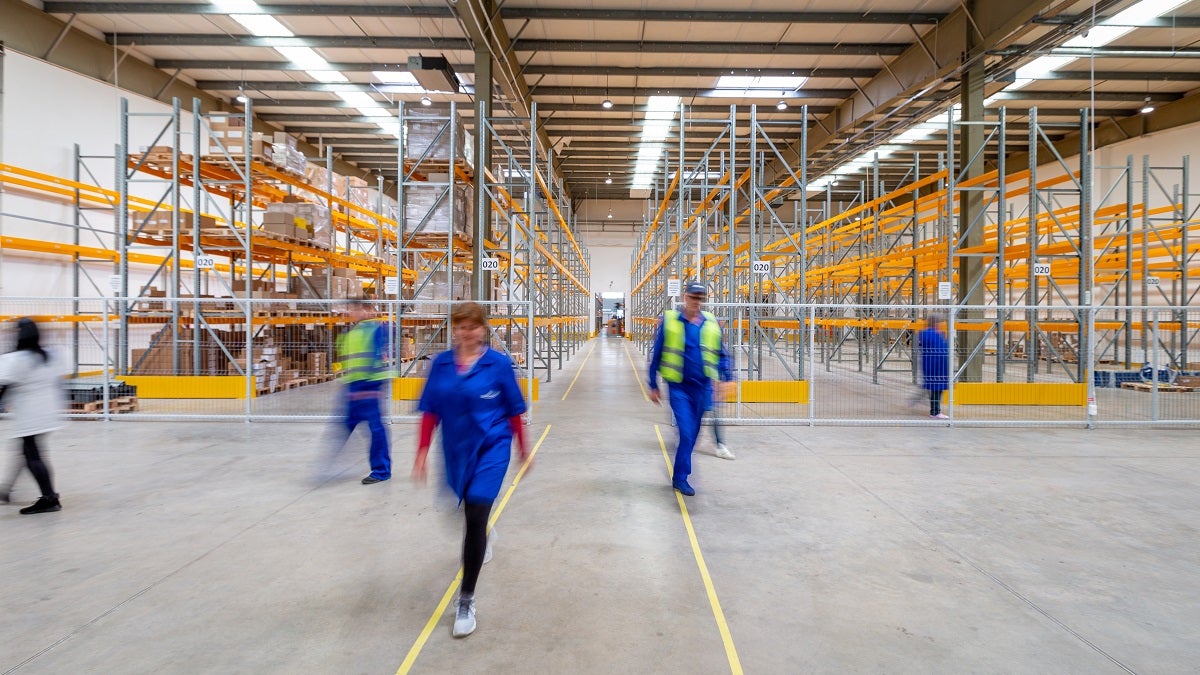
The rapid expansion of the ecommerce sector since the onset of the pandemic has led to ever-growing retailer reliance on the fulfilment industry to get products into the hands of consumers. Unfortunately, because consumers are demanding faster, free delivery and speedy returns for their purchases, the industry’s response has been to push untrained warehouse staff to walk further and work harder in repetitive, manual roles.
At the same time, to create cost savings and make free delivery more viable, many fulfilment companies have moved to replace human problem-solving and personalised service with crude automation and basic robotics. All that’s left for the human employees is monotonous and unfulfilling work, which is why the industry is blighted by an increasingly dissatisfied and transient workforce – to the detriment of quality, efficiency and customer service.
Consequently, ecommerce providers are finding themselves unable to speak to another human when they need to resolve a pressing fulfilment problem, try out a new sales channel or introduce a new product line. Not only is this a frustrating day-to-day experience, but it is also stifling innovation, as retailers regularly find themselves battling a ‘computer says no’ mindset.
More rewarding warehouse roles make for happier humans, which has huge benefits for the retailers we serve
Thankfully, one UK-headquartered fulfilment company, Huboo, is boldly bucking the trend and turning the fulfilment model on its head. The company has created a micro-hub model that replicates the functionality of a complete warehouse within as little as a few hundred square feet. It gives warehouse employees the freedom to work quickly and intelligently on a set client portfolio, undertaking more engaging, varied and empowering work, while benefitting retailers by ensuring they deal with the same warehouse team members each time.
“More rewarding warehouse roles make for happier humans, which has huge benefits for the retailers we serve. Unlike traditional warehouse roles, our employees have real responsibility. They know a retailer’s product offering inside and out, meaning that they can spot any problems with products arriving into the hub and work with retailers directly to solve any issues they face,” says Martin Bysh, CEO and co-founder at Huboo.
“What’s more, our human-centred approach allows us to offer bespoke kitting and packaging requirements across even the most diverse product lines, meaning we can adapt and flex to meet the needs of side hustlers and established large-scale businesses alike.”
A crucial differentiator between Huboo and traditional fulfilment companies is that, rather than striving to replace human workers, Huboo applies technology to enhance the effectiveness of its employees.
“We use technology to empower our workers to take ownership of their roles and enjoy more meaningful day-to-day work. We turn to robots for the manual, repetitive tasks that we know aren’t rewarding for staff, such as stock checking or moving inventory out of deep storage onto the warehouse floor,” adds Martin.
Huboo’s business model successfully challenges the assumption that machines can out-pace and out-think humans in a warehousing environment and demonstrates that over-reliance on technology is not a smart way to drive cost and time efficiencies. The superior precision of human workers is shown by Huboo’s picking accuracy rates of 99.9%, significantly higher than the industry average. The company’s human-centric approach puts its people at the heart of its warehousing strategy, augmented by great technology, and it is the combination of these factors that keeps Huboo’s logistics costs competitive.
Huboo’s bottom line is proof of the success of this approach – the company is tipped to become a future Unicorn, with its valuation predicted to exceed $1bn later this year. In little over a year it has increased its UK footprint and opened in three new countries – and is eyeing further global expansion in 2022. But its success is perhaps best reflected in its client churn rates, which have remained consistently near zero from day one – a remarkable achievement in a logistics industry renowned for its high client dissatisfaction and low retention.
To find out more, visit huboo.com
Promoted by Huboo

The rapid expansion of the ecommerce sector since the onset of the pandemic has led to ever-growing retailer reliance on the fulfilment industry to get products into the hands of consumers. Unfortunately, because consumers are demanding faster, free delivery and speedy returns for their purchases, the industry’s response has been to push untrained warehouse staff to walk further and work harder in repetitive, manual roles.
At the same time, to create cost savings and make free delivery more viable, many fulfilment companies have moved to replace human problem-solving and personalised service with crude automation and basic robotics. All that’s left for the human employees is monotonous and unfulfilling work, which is why the industry is blighted by an increasingly dissatisfied and transient workforce – to the detriment of quality, efficiency and customer service.
Consequently, ecommerce providers are finding themselves unable to speak to another human when they need to resolve a pressing fulfilment problem, try out a new sales channel or introduce a new product line. Not only is this a frustrating day-to-day experience, but it is also stifling innovation, as retailers regularly find themselves battling a ‘computer says no’ mindset.




